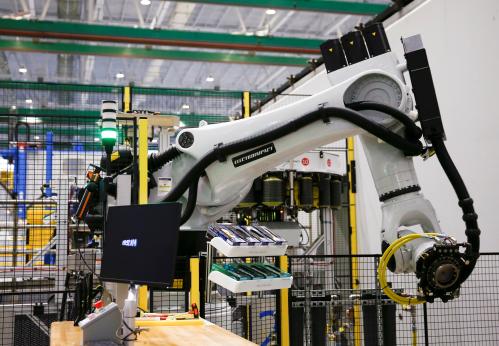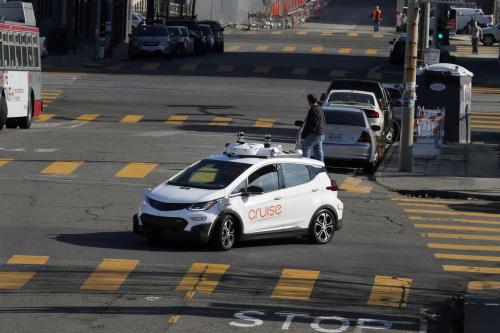In this episode of the Brookings Cafeteria podcast, “How will automation impact middle-class jobs,” Nonresident Fellow Marcus Casey interviews James Bessen, Executive Director of the Technology and Policy Research Initiative at Boston University’s School of Law, on how automation and artificial intelligence are affecting middle-class jobs. Here are five key takeaways:
- Many observers focus on the wrong issues when considering automation’s impact on workers. While the discussion surrounding the effect of automation on workers typically centers on a narrative about imminent mass unemployment, Jim Bessen emphasizes that although some workers are losing jobs, new jobs are being created. The net-employment effects have not generally resembled mass-unemployment events. Public policy would be best directed at helping affected workers in their job-to-job transitions.
- Jim Bessen argues that although technological progress and automation have always occurred, recent advancements in automation technologies is happening much faster than the past and complementary software is changing rapidly, affecting a bigger swath of the economy. Consequently, workers must learn new skills that are relevant to current and future labor markets more quickly than in the past.
- Bessen notes that automation is only a small part of larger suite of technological advances that will combine to have more substantial effects on the economy and society. Automation refers to a situation where a machine takes over some tasks that humans previously performed. But technological advancement in general leads to the creation of new products and services, improvements in the quality of these products and services, and enhancements in human capabilities. Thus, the potential for technological progress to further exacerbate inequality and the dominance of large firms is potentially far more serious than effects of automation on workers.
The potential for technological progress to further exacerbate inequality and the dominance of large firms is potentially far more serious than effects of automation on workers.
- We expect to see increased job-to-job transitions among workers whose occupations are particularly susceptible to automation—those that tend to be made up of tasks that are routine and structured. Policy may potentially help displaced workers make successful labor market transitions. Foremost, making education, retraining, and apprenticeship programs that help workers obtain new skills better available is key. In addition, unemployment insurance programs that combine transfers with training and help with modern search methods will likely be needed. Finally, policy aimed at reducing barriers to geographical mobility and ensuring the portability of educational credentials across locations for those who want to move to work will be helpful given the concentration of economic activity in certain areas.
- In the short term, to better design policy, it will be crucial for researchers to establish the automation’s impact on workers across occupation type and industry. This will require the development of new data on workers and firms.








Commentary
Machines and the middle class: 5 lessons from a discussion between Marcus Casey and James Bessen
January 17, 2020